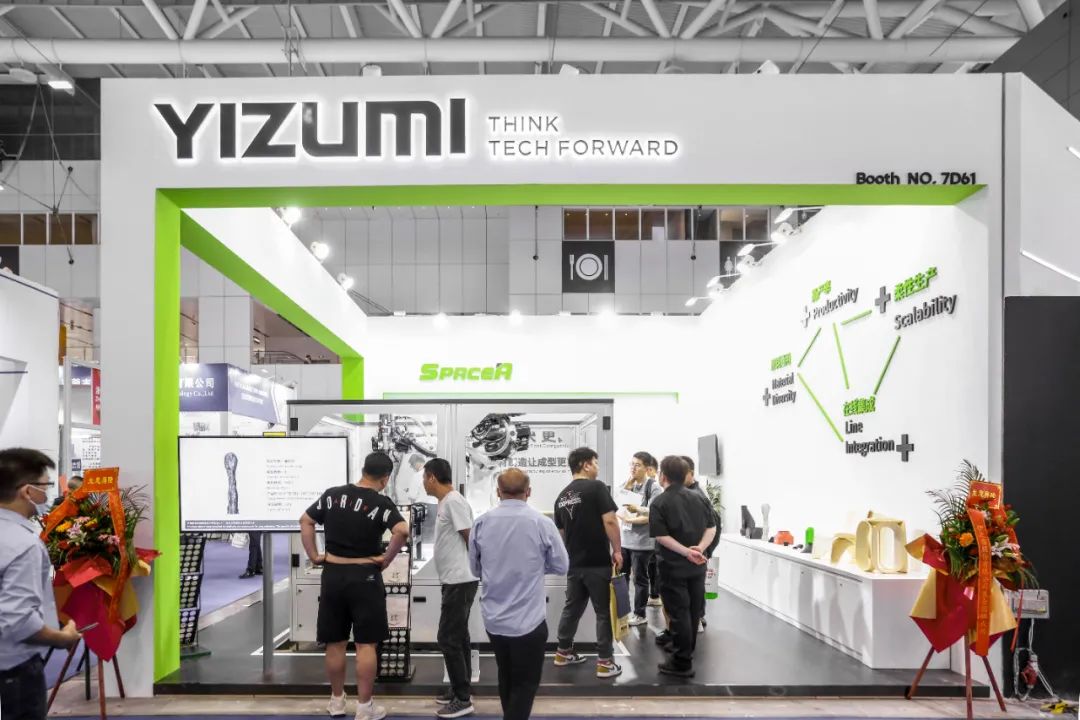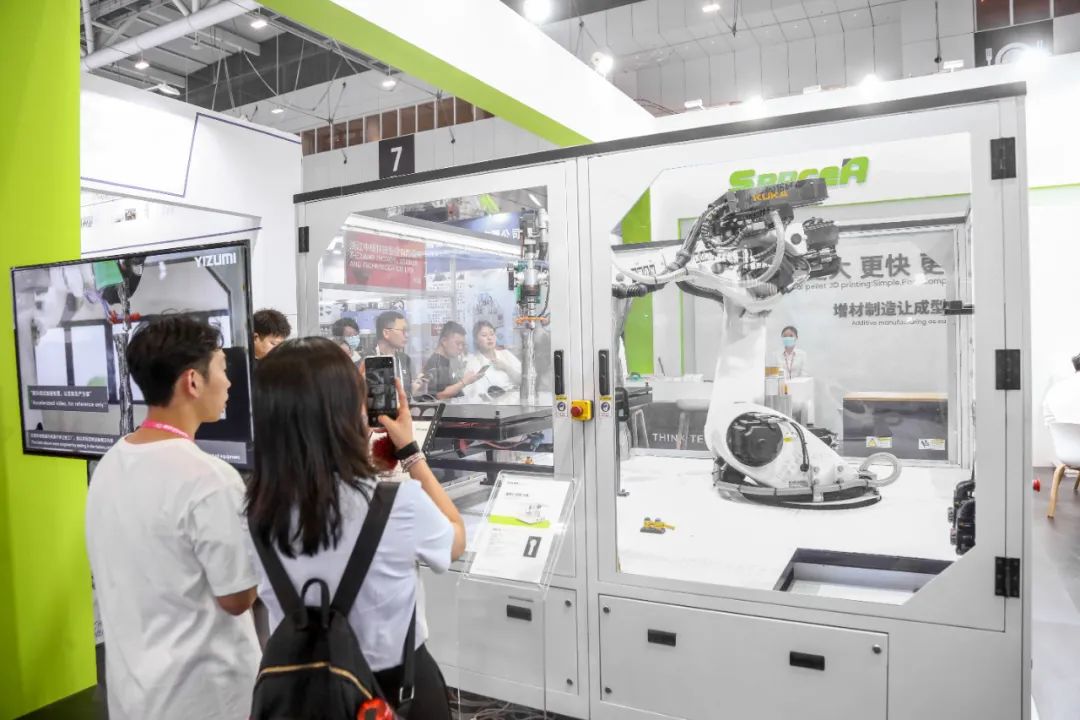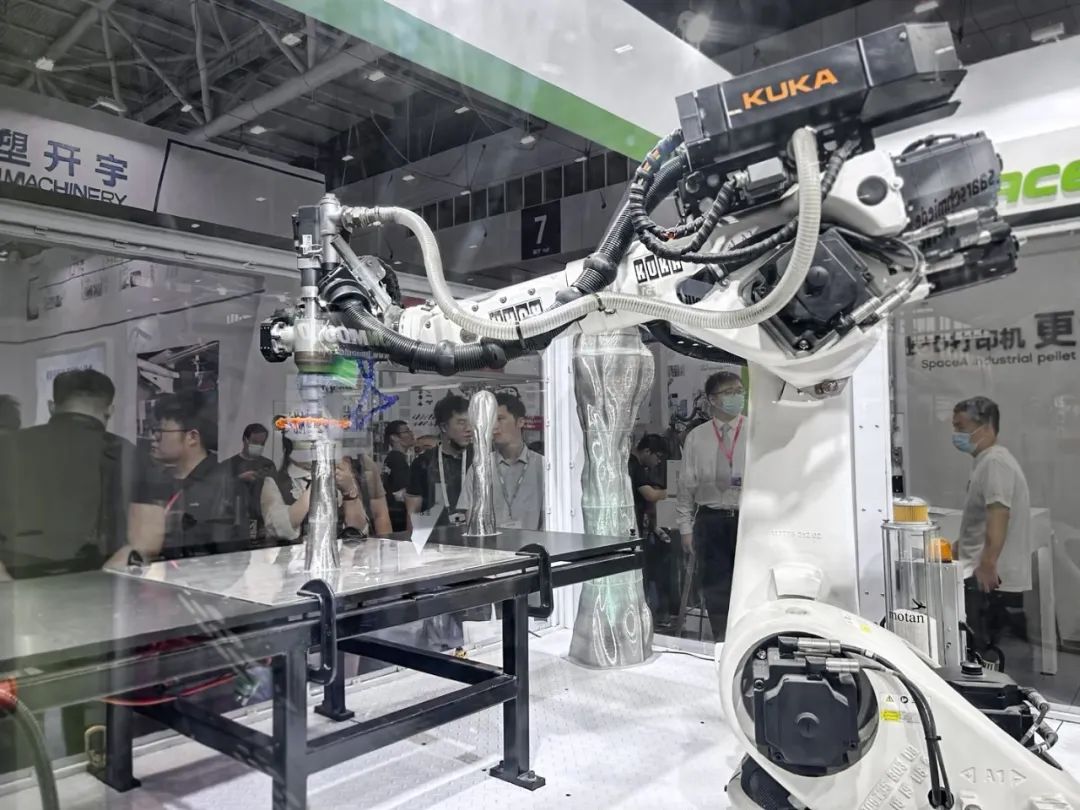Additive manufacturing technology, also known as 3D printing, is a future-oriented manufacturing process. Compared to traditional manufacturing processes, 3D printing technology is a revolutionary invention that integrates big data, AI, among other advanced technologies to extend the possibilities of every part of our lives.
For this, we have actively collaborated with various strategic partners, including well-known manufacturers, universities and research institutes. Currently, the SpaceA industrial 3D printers, developed by the YIZUMI Aachen R&D Center in Germany, are applied in vehicles, healthcare, sports goods, furniture, architecture, advertisement and decoration.



At the 35th CHINAPLAS in April 2023, YIZUMI not only exhibited its cutting-edge SpaceA Industrial Pellet 3D Printing, but also 3D-printed products that are accessible and useful in everyday life. Among them, the "New Inheritance of Flower Drum", co-developed with Ms Mo Jiao, a professor from College of Design and Innovation of Tongji University, received considerable attention and praise.
To broaden the applications of 3D printing, YIZUMI has once again cooperated with College of Design and Innovation of Tongji University. We conduct thorough research on their courses and provide professional solutions to assist teachers and students in realizing design ideas in courses like furniture design and outdoor architectural design, where design ideas are constrained by craftsmanship and cannot be realized.
Efficiency and intensity have always been major barriers to the use of 3D printing technology in the production of large-sized objects. The SpaceA industrial 3D printing employs granular raw materials and plasticizes them with a self-designed compact screw extruder, achieving fast and efficient printing.
Furthermore, SpaceA's six-axis robot can print up to 2 × 1 × 2m, making it ideal for large-sized objects. At the same time, the multi-degree-of-freedom robots provides exceptional flexibility to SpaceA, allowing for complicated printing operations, such as printing direction changes and printing on any curved surface.
SpaceA can print at speeds of up to 50mm/s and has a production efficiency of more than 1kg/h. When combined with a replaceable nozzle with a diameter of 0.3-5mm, it allows for the efficient production of products with various accuracies and sizes. It also provides customers with a variety of expansion options and customized solutions.
Looking forward, we will continue to delve deeply into 3D printing and push the technical development of our SpaceA industrial 3D printing, which has many advantages for achieving small-scale production of individualized components, thereby extending industrial manufacturing opportunities in sports products, automotive parts, home appliance parts, handicrafts, construction, furniture, and other industries.